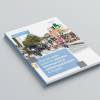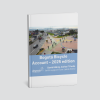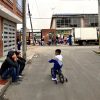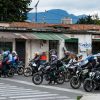In addition to Despacio, the organizations that supported this event were: Bridging the Gap Initiative, CAF-Development Bank of Latin America, Deutsche Gesellschaft für Internationale Zusammenarbeit (GIZ), Ford Foundation, Inter-American Development Bank y Institute for Transportation Development and Policy.
The main objective was to show the importance of sustainable urban mobility in making cities economically and socially more equitable. Another objective was to contribute to the development of SLoCaT’s collaborative work project on sustainable transport and poverty reduction.
The event consisted of open and inclusive dialogues and debates among experts on the topic of sustainable transport and citizens sharing their experiences with the experts and the audience. Discussions and questions were raised about why certain cities have failed to provide safe access for their inhabitants while others have and how they did it. This session took advantage of testimonials (both positive and negative) from citizens affected by the way in which their city organizes mobility.
The topics of the group sessions were as follows:
Towards an Urban Mobility Approach Based on Human Rights
- Towards an Urban Mobility Approach Based on Human Rights: defining mobility as a fundamental element for the realization of certain human rights (Petra Heusser, UN Habitat).
- Mobility as a public good: Analysis of transport and mobility in favor of sustainable development. (Manfred Breithaupt, GIZ).
- Equitable Transportation: Process, impact and benefits of the Safe Route WUF7. (Carlosfelipe Pardo, Despacio).
- Gender dimension: priorities and necessities of women in transportation. What has been done and what remains. (Daniel Pulido, World Bank.)
Making Use of Social Networks and ICT in Favor of Safe and Inclusive Access for All
- Bicimapa: Its use for experts/activists and amateurs; connections between the two (Alberto Alonso).
- Moovit: How to create better transit information. Information, interaction, user satisfaction levels (Omar Tellez).
- Cycle-A-Way UniAndes GIS Transport Lab: Advantages of an online map in the planning of cycling routes (Daniel Páez).
- Safetipin: Personal safety, integration of the community, and audits. (Kalpana Viswanath).









Comentarios recientes